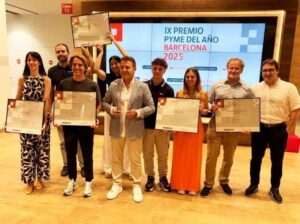The Ministry of Industry and Tourism has taken a significant step towards sustainability and innovation by approving three new projects within the framework of the third call of the PERTE for Electric and Connected Vehicles. These initiatives, focused on battery technology, are slated to receive around 50 million euros in funding, as announced by Minister Jordi Hereu at a press breakfast organized by Europa Press.
The selected projects include Lithium Iberia, which will be based in Cañaveral, Cáceres, with the aim of producing and recovering essential raw materials for battery and component manufacturing. This company will receive the majority of the funding, with over 20 million euros secured for its development. In second place, Iberpotash, located in Sallent, Barcelona, will benefit from about 18 million euros for electric component production. Lastly, Industrias Químicas del Óxido de Etileno, based in La Canonja, Tarragona, will receive over 11 million euros for activities related to component manufacturing.
During his speech, Hereu highlighted the effectiveness of strategic transformation projects in various areas, mentioning that the Industrial Decarbonization PERTE has already granted a total of 371 million euros to finance 60 selected projects. He also noted that future funding calls will be managed by SEPIDES, following its conversion into a State Public Entity.
The minister also discussed measures implemented to mitigate the effects of the DANA weather phenomenon, announcing the opening of the FAIIP DANA funding window, with a budget of 650 million euros. This initiative will offer zero interest rates and a three-year grace period, making it easier for affected companies to acquire assets. Additionally, the Reinicia Auto+ Plan has received 9,000 applications for vehicle purchase assistance, aimed at those impacted by this weather disaster.
In his address, Hereu emphasized the urgency of establishing a pact for industry that ensures economic and industrial growth in Spain and Europe, highlighting the importance of reindustrializing both regions. In this regard, he mentioned the need to approve a new Industry and Strategic Autonomy Law as a key measure.
In the tourism sector, the minister highlighted positive tourist arrival numbers and spending increases, as part of a modernization and competitiveness plan for the sector that includes a public investment of 3.4 billion euros. This program aims to restore historical heritage and promote sustainable tourism, while also encouraging the digitalization of destinations and businesses, leading to greater diversification and seasonal flow.
Source: MiMub in Spanish












